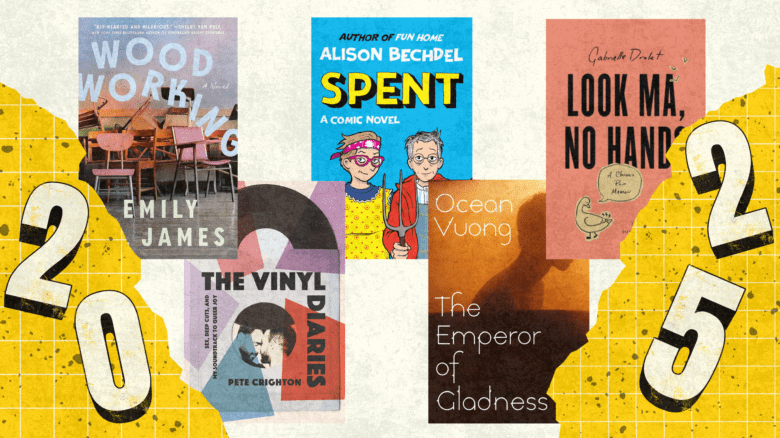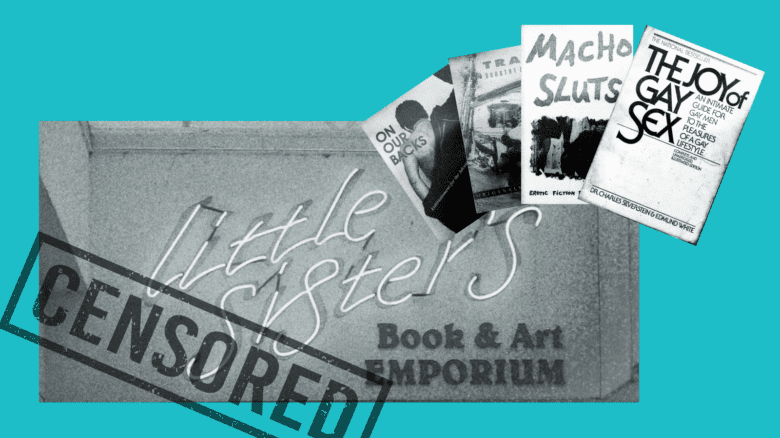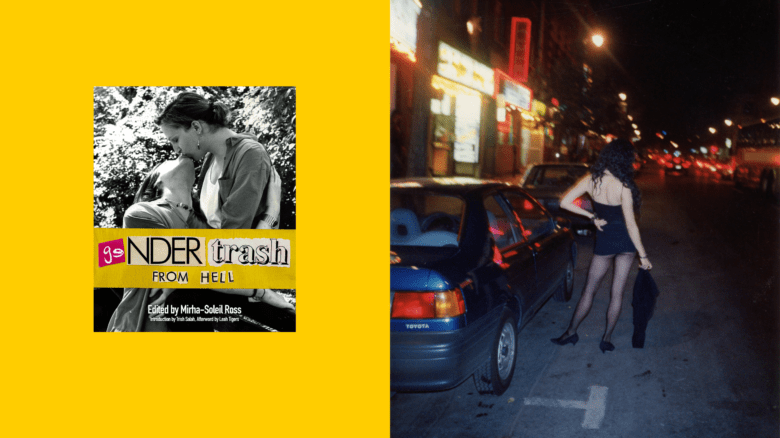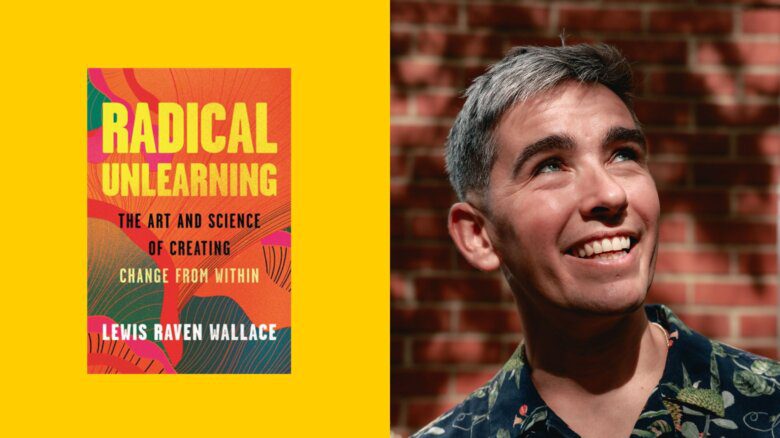Fans of comics creator Molly Ostertag are going to have to venture into a possibly new frontier to read her latest work: it will be featured exclusively in a weekly email newsletter.
The New York Times bestselling author of The Witch Boy and The Girl from the Sea is launching her latest book-length graphic novel project exclusively through her Substack newsletter, marking another big shift for the platform and comics creation.
“It felt like a really cool opportunity to just dig into the story that has been in my mind for a while, but I haven’t quite known what the place would be,” she told Xtra.
Darkest Night debuted this month, and will be serialized every Friday through Ostertag’s newsletter In the Telling, which launched in August as a platform for Ostertag to share comics creation advice and other short clips and sketches.
The California writer and artist garnered much acclaim for her 2017 young adult graphic novel The Witch Boy and its two sequels, which are set for an upcoming animated musical adaptation through Netflix. Earlier this year, Ostertag also published The Girl from the Sea, a young-adult queer romance set in Nova Scotia.
But with Darkest Night, she’s taking the long-form YA comics narratives she’s known for into a new frontier. Targeted at more of a teen audience compared to much of her previous work, the story follows two best friends, Mags and Nessa, as they navigate their pasts (alongside a splash of mystery and magical realism involving a secret in Mags’ basement).
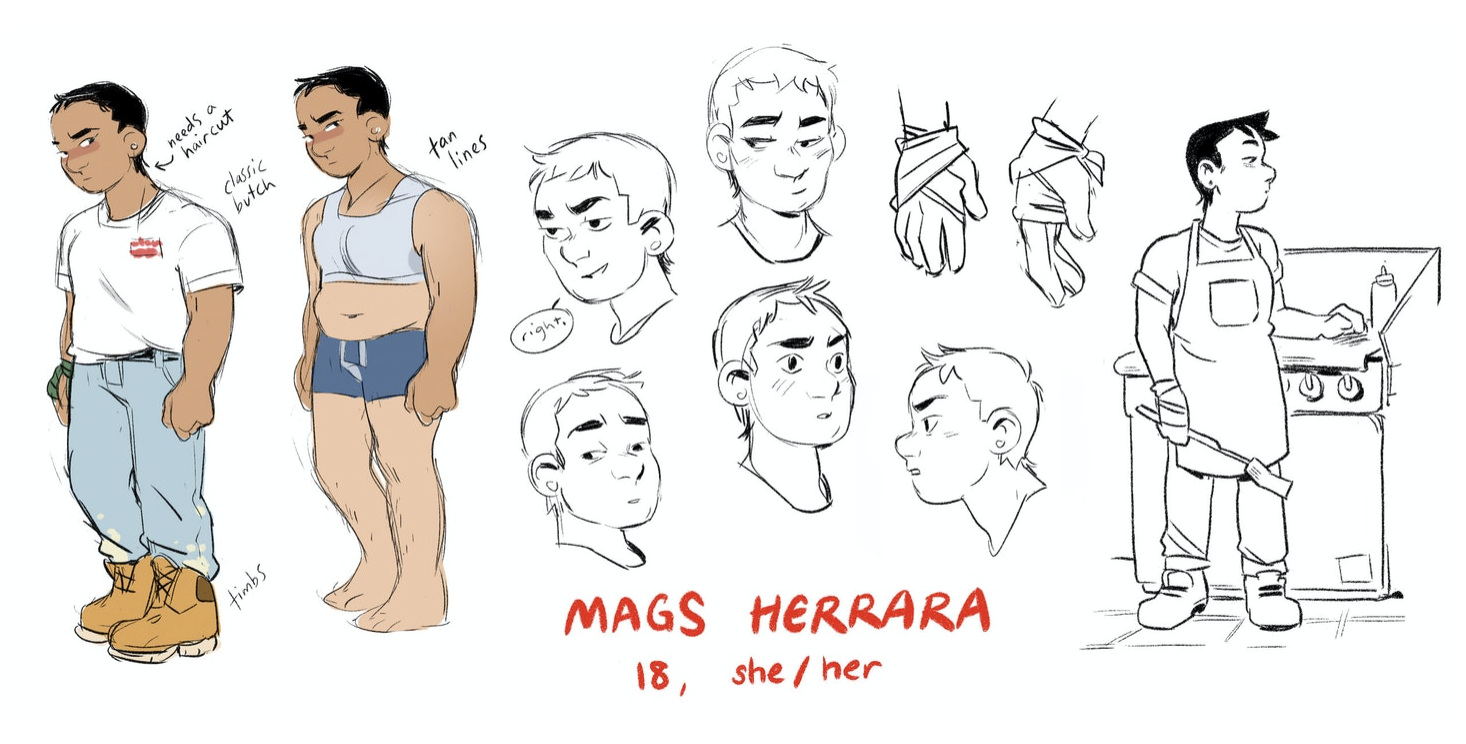
Credit: Molly Ostertag
Ostertag says the story features multiple openly queer and trans characters, but it’s not just about their queerness.
“It’s not a story about coming out or homophobia or transphobia,” Ostertag says. “But it is a story about very clear emotions and the specifically queer ways in which we deal with our memories and our history and the way that we compartmentalize our feelings.”
Its weekly serialized nature is a throwback to web comics like Ostertag’s own Strong Female Protagonist, a collaboration with writer Brennan Lee Mulligan, which saw short updates published twice a week online between 2012 and 2018. And, of course, it hearkens back to the serialization of print comics (in strips or otherwise) throughout much of the 20th century.
Ostertag says it’s been fun to experiment in publishing short, weekly bits rather than writing and publishing an entire graphic novel in one go. While she has much of Darkest Night outlined, it’s a project she hopes will evolve alongside her readers.
“I wanted to tell it and figure out the story as I was telling it rather than bring it fully formed to a publisher,” she says. “I always really enjoyed the way that a community formed around a narrative when you’re telling the story. People will always show up and just get interested in seeing where it’s gonna go. That’s something I haven’t done for quite a while.”
Ostertag says Darkest Night will likely take over a year to publish in full through the newsletter, and she’ll try to publish it in print after that. But in the meantime, she’s excited to engage with both the story and her audience through the serialized format.
“I always make playlists for my projects, so I’ll post a song to go along with it [each week]—sort of like ‘put this on as you’re reading it,’” she says. “I’m exploring a couple of pages where I want to do some animation. It’s really fun to get to do those little things, to curate experiences. It feels very artistically indulgent in a really fun way.”
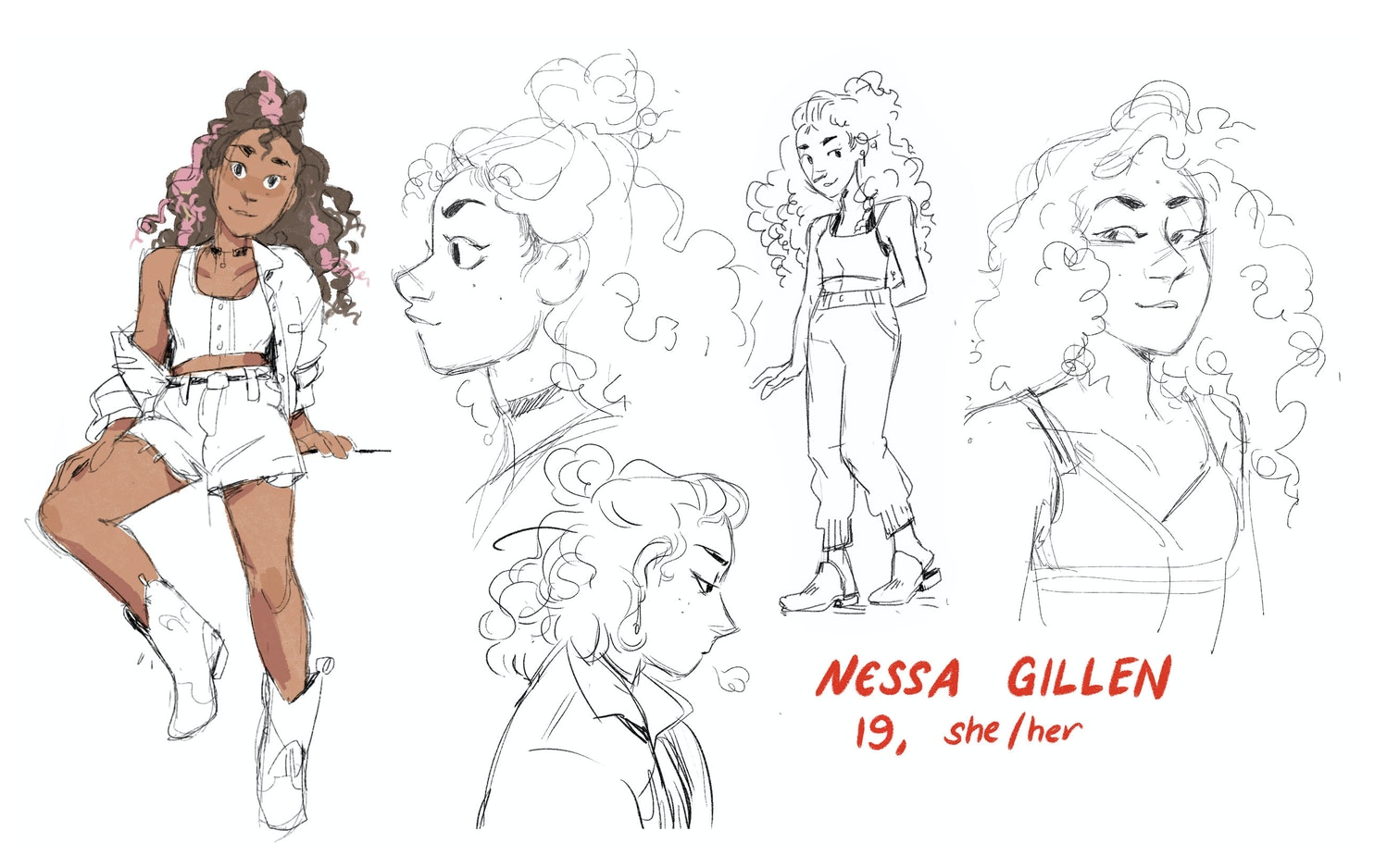
Credit: Molly Ostertag
But Ostertag is entering a contentious space in choosing to publish her work through Substack.
The platform recently came under fire for continuing to platform anti-trans voices such as Graham Linehan. Many queer and trans creators left the platform earlier this year, encouraging subscribers to boycott the platform until Linehan stopped receiving support from the platform and Substack stopped paying huge advances to noted transphobes.
But other high-profile queer and trans creators, including Ostertag, her spouse ND Stevenson and the writers Grace and Daniel Lavery, accepted sizeable grants to publish exclusively on the platform.
All have spoken to varying degrees about the messy nature of joining Substack. Stevenson recently launched his own autobiographical comics-oriented newsletter, noting in a disclaimer that “as a trans person, I am very much aware that Substack has become a platform to many dangerous anti-trans voices, and I take it very seriously.”
“This is not about a difference of opinion,” Stevenson continued. “This is about the safety of trans people everywhere. I urge Substack to deplatform TERFs who have built their brands on harassment.”
Ostertag wouldn’t disclose how much money she received upfront from Substack to publish her newsletter and Darkest Night. But like Stevenson, who is donating his Substack subscription fees to the trans charity Genderbands, Ostertag says she’ll be matching and donating all subscriber proceeds to trans charities, starting with Trans Lifeline, which provides peer support and resources to trans people across Canada and the U.S.
Ostertag says she recognizes the fraught nature of publishing on Substack and agrees that the likes of Linehan should not get support from the platform. But ultimately, she sees starting her newsletter as a way to move away from other toxic online spaces, like Twitter.
Publishing on Substack, Ostertag argues, gives her more control over who sees and engages with her and her content. She says she’s encouraged by the grants Substack has given to queer and trans creators recently.
“I’ve seen [Substack] reaching out and specifically giving money to and trying to fund trans voices and queer voices in a way that makes me feel like they are trying to address this,” she said.
Ostertag hopes platforms like Substack give real opportunities to younger, up-and-coming queer and trans comics creators to create passion projects—like Darkest Night—on their own terms.
“There’s so many people where I just want to see them given a chunk of money to get to make exactly what they want,” she says. “I’ve been communicating with my contacts [at Substack] and been like, ‘Here’s a 100-person list of people you should reach out to.’ So I hope they continue to reach out to queer cartoonists.”
Darkest Night is available to paying subscribers of Ostertag’s newsletter In the Telling.
This article has been updated to clarify Graham Linehan’s relationship to Substack.
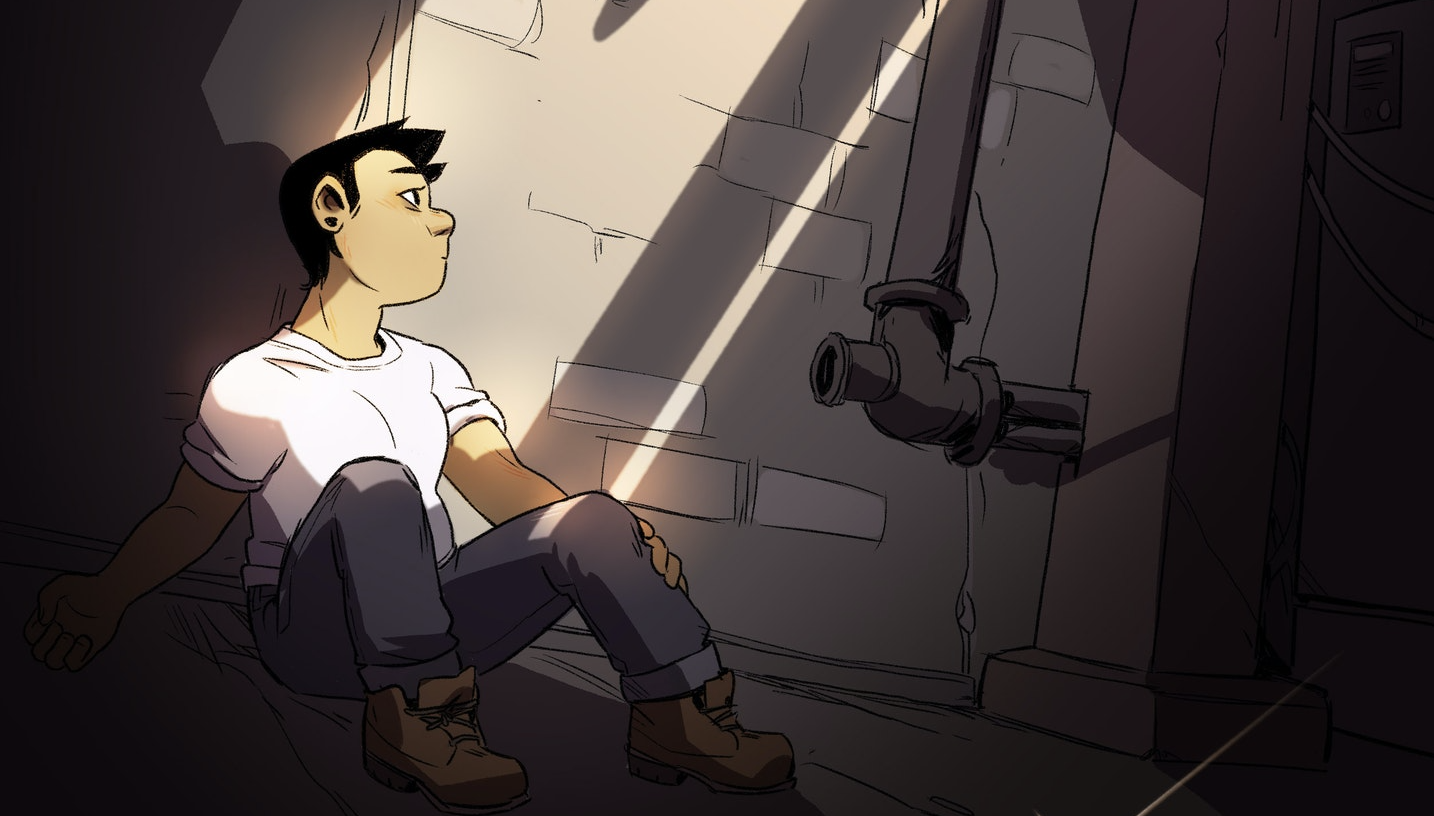

 Why you can trust Xtra
Why you can trust Xtra